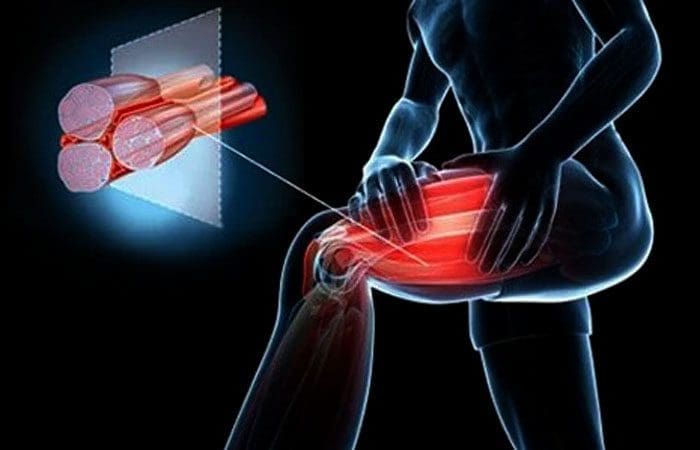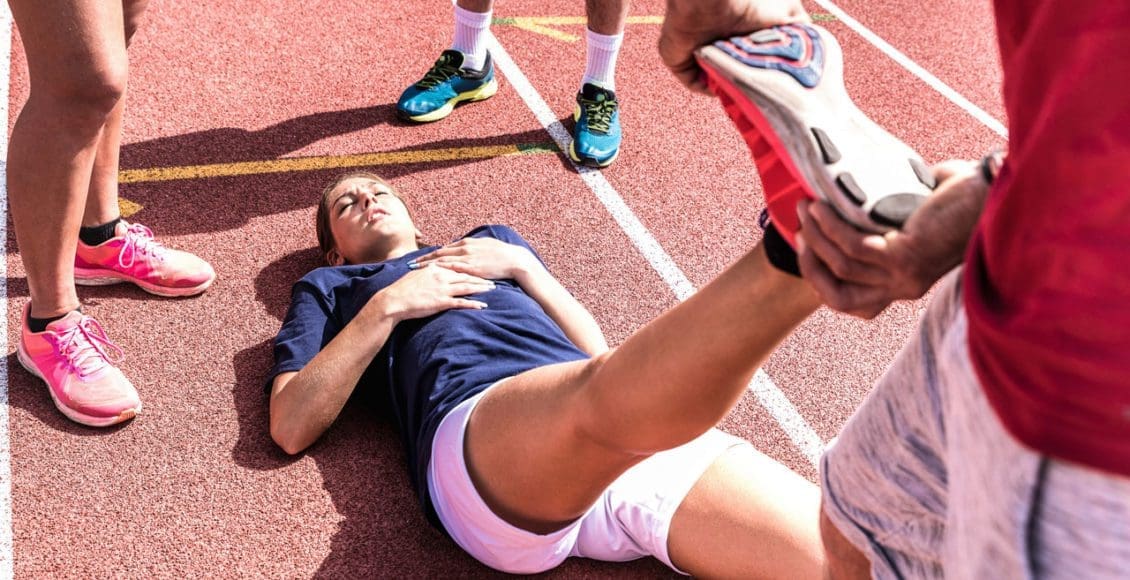Muscle cramps are sudden and involuntary contractions of one or more of the body’s muscles. They often occur at night or at any moment stopped by a sudden Charley horse. These cramps can cause severe pain, making it impossible to move and use the affected muscle/s. They are usually brought on from:
- Long periods of exercise
- Physical labor
- Hot weather
- All can lead to muscle cramps.
- There are medications and certain conditions that can cause muscle cramping. Muscle cramps can be treated at home with self-care.

Table of Contents
Affected by muscle cramps
Muscle cramps are common and can happen to anyone, but often occur to:
- Indoor/outdoor physical work employees
- Pregnant women
- The elderly
- Infants
- Individuals that are overweight
- Athletes
Cramping Up
Muscle cramps can be a symptom of a variety of medical issues. It is typically dehydration and muscle strain from overworking/exercising the muscles, but it can also be a sign of medical conditions like:
- Poor circulation
- Mineral depletion low levels of magnesium, calcium, potassium, and choline
- Diuretics
- Low electrolyte levels
- Nerve disorders are rare cases, but a pinched nerve or spinal cord injury can cause nerve compression that can lead to cramping
- Tight muscles come from inactivity, and not stretching the body causes the muscles to contract involuntarily
- Hypothyroidism, a thyroid gland that is less active than normal, can cause cramps
- Liver disease
Muscle cramps can make daily activities difficult, if not impossible, to perform. They often happen at night, affecting proper sleep. This can lead to:
- Pain hangover
- Grogginess
- Fogginess
- Cautious body behavior – as an individual wants to avoid pain and more cramping, they begin to watch how they:
- Step
- Reach
- Bend
- Move
- So as not to cause discomfort, pain, and further cramping, they develop awkward body positions that create more health problems from improper body posture.
Muscle cramps can happen to any muscle of the body. However, they present most often in the:
- Abdomen
- Ribs
- Legs
- Feet
- Hands
- Arms
Symptoms
This is usually sudden, sharp pain. Individuals can also feel or see a lump of muscle tissue under the skin.

When to see a professional
They usually go away on their own, not requiring medical care. However, seek medical attention if the cramps:
- Are causing severe discomfort and pain
- Severe swelling, redness, or changes in skin tone
- Muscle weakness is present
- They are occurring frequently
- They do not improve with self-care
- There is no connection with an obvious cause, like intense physical activity/exercise
Mineral Depletion
Choline is a nutrient that is just as important but not as well known as B vitamins. Choline has a fundamental role in muscle physiology, and low levels could be a cause/contributor to muscle cramping. Choline is well-known for its function as part of the neurotransmitter acetylcholine. This is a chemical messenger that transmits signals between nerve cells and muscles. Acetylcholine is the physiological link that tells the muscles to contract. This is where medications can interfere with the messaging system.
Most believe that muscle cramps are caused by magnesium deficiency. This is true, but magnesium is not the only nutrient that could present muscle issues. Choline regulates intracellular calcium and muscle contraction. This is what helps bind calcium proteins to muscle receptors. Choline keeps minerals like calcium available to the muscles so they can use it instantly when they need to contract. Testing for choline status could be the key for individuals with skeletal muscle issues, which can be muscle cramping, general soreness, or another type of issue.
Prevention and Relief
Home self-care for prevention and relief includes:
- Heat or ice application to the muscle/s and affected areas
- Avoiding caffeine
- Drink plenty of water before and during physical activities, indoor/outdoor work, exercise
- Self-massaging the cramped muscle/s
- Stretching before and after physical activities
- Nightly stretching before bed
- Chiropractic maintenance
Body Composition Testing
References
American Osteopathic Association. Muscle Cramp. Accessed 12/10/2019.
Merck Manual. Muscle Cramps. Accessed 12/10/2019.
Miller, Timothy M, and Robert B Layzer. “Muscle cramps.” Muscle & nerve vol. 32,4 (2005): 431-42. doi:10.1002/mus.20341
Nutrients, July 202
Post Disclaimer
Professional Scope of Practice *
The information on this blog site is not intended to replace a one-on-one relationship with a qualified healthcare professional or licensed physician and is not medical advice. We encourage you to make healthcare decisions based on your research and partnership with a qualified healthcare professional.
Blog Information & Scope Discussions
Welcome to El Paso's Premier Wellness and Injury Care Clinic & Wellness Blog, where Dr. Alex Jimenez, DC, FNP-C, a board-certified Family Practice Nurse Practitioner (FNP-BC) and Chiropractor (DC), presents insights on how our team is dedicated to holistic healing and personalized care. Our practice aligns with evidence-based treatment protocols inspired by integrative medicine principles, similar to those found on this site and our family practice-based chiromed.com site, focusing on restoring health naturally for patients of all ages.
Our areas of chiropractic practice include Wellness & Nutrition, Chronic Pain, Personal Injury, Auto Accident Care, Work Injuries, Back Injury, Low Back Pain, Neck Pain, Migraine Headaches, Sports Injuries, Severe Sciatica, Scoliosis, Complex Herniated Discs, Fibromyalgia, Chronic Pain, Complex Injuries, Stress Management, Functional Medicine Treatments, and in-scope care protocols.
Our information scope is limited to chiropractic, musculoskeletal, physical medicine, wellness, contributing etiological viscerosomatic disturbances within clinical presentations, associated somato-visceral reflex clinical dynamics, subluxation complexes, sensitive health issues, and functional medicine articles, topics, and discussions.
We provide and present clinical collaboration with specialists from various disciplines. Each specialist is governed by their professional scope of practice and their jurisdiction of licensure. We use functional health & wellness protocols to treat and support care for the injuries or disorders of the musculoskeletal system.
Our videos, posts, topics, subjects, and insights cover clinical matters and issues that relate to and directly or indirectly support our clinical scope of practice.*
Our office has made a reasonable effort to provide supportive citations and has identified relevant research studies that support our posts. We provide copies of supporting research studies available to regulatory boards and the public upon request.
We understand that we cover matters that require an additional explanation of how they may assist in a particular care plan or treatment protocol; therefore, to discuss the subject matter above further, please feel free to ask Dr. Alex Jimenez, DC, APRN, FNP-BC, or contact us at 915-850-0900.
We are here to help you and your family.
Blessings
Dr. Alex Jimenez DC, MSACP, APRN, FNP-BC*, CCST, IFMCP, CFMP, ATN
email: coach@elpasofunctionalmedicine.com
Licensed as a Doctor of Chiropractic (DC) in Texas & New Mexico*
Texas DC License # TX5807
New Mexico DC License # NM-DC2182
Licensed as a Registered Nurse (RN*) in Texas & Multistate
Texas RN License # 1191402
ANCC FNP-BC: Board Certified Nurse Practitioner*
Compact Status: Multi-State License: Authorized to Practice in 40 States*
Graduate with Honors: ICHS: MSN-FNP (Family Nurse Practitioner Program)
Degree Granted. Master's in Family Practice MSN Diploma (Cum Laude)
Dr. Alex Jimenez, DC, APRN, FNP-BC*, CFMP, IFMCP, ATN, CCST
My Digital Business Card


